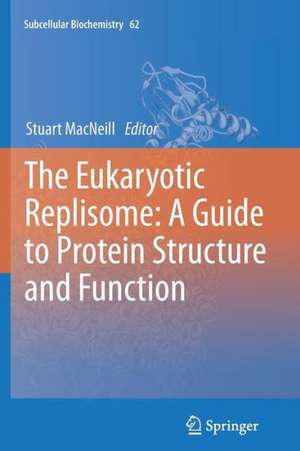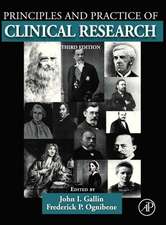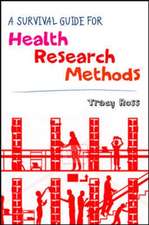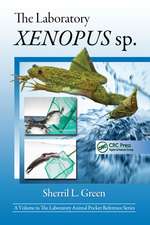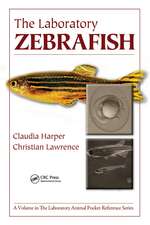The Eukaryotic Replisome: a Guide to Protein Structure and Function: Subcellular Biochemistry, cartea 62
Editat de Stuart MacNeillen Limba Engleză Paperback – 21 sep 2014
| Toate formatele și edițiile | Preț | Express |
|---|---|---|
| Paperback (1) | 1412.99 lei 43-57 zile | |
| SPRINGER NETHERLANDS – 21 sep 2014 | 1412.99 lei 43-57 zile | |
| Hardback (1) | 1422.14 lei 43-57 zile | |
| SPRINGER NETHERLANDS – 24 aug 2012 | 1422.14 lei 43-57 zile |
Din seria Subcellular Biochemistry
- 18%
 Preț: 948.79 lei
Preț: 948.79 lei - 5%
 Preț: 1456.88 lei
Preț: 1456.88 lei - 18%
 Preț: 1373.84 lei
Preț: 1373.84 lei - 18%
 Preț: 1243.78 lei
Preț: 1243.78 lei - 18%
 Preț: 2098.81 lei
Preț: 2098.81 lei - 18%
 Preț: 1122.10 lei
Preț: 1122.10 lei -
 Preț: 366.05 lei
Preț: 366.05 lei - 5%
 Preț: 1160.63 lei
Preț: 1160.63 lei - 18%
 Preț: 1396.26 lei
Preț: 1396.26 lei - 18%
 Preț: 1114.96 lei
Preț: 1114.96 lei - 18%
 Preț: 1224.68 lei
Preț: 1224.68 lei - 18%
 Preț: 951.29 lei
Preț: 951.29 lei - 18%
 Preț: 1227.99 lei
Preț: 1227.99 lei -
 Preț: 398.15 lei
Preț: 398.15 lei -
 Preț: 399.88 lei
Preț: 399.88 lei - 18%
 Preț: 1231.47 lei
Preț: 1231.47 lei - 18%
 Preț: 1230.35 lei
Preț: 1230.35 lei -
 Preț: 392.60 lei
Preț: 392.60 lei - 18%
 Preț: 1231.47 lei
Preț: 1231.47 lei - 15%
 Preț: 638.76 lei
Preț: 638.76 lei - 5%
 Preț: 656.26 lei
Preț: 656.26 lei -
 Preț: 389.49 lei
Preț: 389.49 lei - 5%
 Preț: 659.19 lei
Preț: 659.19 lei -
 Preț: 392.37 lei
Preț: 392.37 lei - 5%
 Preț: 662.09 lei
Preț: 662.09 lei -
 Preț: 395.09 lei
Preț: 395.09 lei - 5%
 Preț: 667.99 lei
Preț: 667.99 lei -
 Preț: 400.47 lei
Preț: 400.47 lei - 18%
 Preț: 1224.54 lei
Preț: 1224.54 lei - 15%
 Preț: 647.73 lei
Preț: 647.73 lei - 15%
 Preț: 646.75 lei
Preț: 646.75 lei - 5%
 Preț: 662.30 lei
Preț: 662.30 lei -
 Preț: 395.25 lei
Preț: 395.25 lei - 18%
 Preț: 1230.21 lei
Preț: 1230.21 lei - 18%
 Preț: 1231.95 lei
Preț: 1231.95 lei - 18%
 Preț: 964.54 lei
Preț: 964.54 lei
Preț: 1412.99 lei
Preț vechi: 1487.36 lei
-5% Nou
Puncte Express: 2119
Preț estimativ în valută:
270.42€ • 281.58$ • 228.53£
270.42€ • 281.58$ • 228.53£
Carte tipărită la comandă
Livrare economică 10-24 martie
Preluare comenzi: 021 569.72.76
Specificații
ISBN-13: 9789400797703
ISBN-10: 9400797702
Pagini: 356
Ilustrații: VIII, 348 p.
Dimensiuni: 155 x 235 x 19 mm
Greutate: 0.5 kg
Ediția:2012
Editura: SPRINGER NETHERLANDS
Colecția Springer
Seria Subcellular Biochemistry
Locul publicării:Dordrecht, Netherlands
ISBN-10: 9400797702
Pagini: 356
Ilustrații: VIII, 348 p.
Dimensiuni: 155 x 235 x 19 mm
Greutate: 0.5 kg
Ediția:2012
Editura: SPRINGER NETHERLANDS
Colecția Springer
Seria Subcellular Biochemistry
Locul publicării:Dordrecht, Netherlands
Public țintă
ResearchCuprins
1. Composition and dynamics of the eukaryotic replisome: a brief overview. - 2. Evolutionary diversification of eukaryotic DNA replication machinery. - 3. The origin recognition complex: a biochemical and structural view. - 4. Archaeal Orc1/Cdc6 Proteins. -5. Cdt1 and Geminin in DNA replication initiation. - 6. MCM structure and mechanics: what we have learned from archaeal MCM. - 7. The Eukaryotic Mcm2-7 Replicative Helicase. - 8. The GINS complex: structure and function. - 9. The Pol α-primase complex. - 10. The structure and function of replication protein A in DNA replication. - 11. Structural biology of replication initiation factor Mcm10. - 12. Structure and function of eukaryotic DNA polymerase d. - 13. DNA polymerase ε. - 14. The RFC clamp loader: structure and function. - 15. PCNA structure and function: insights from structures of PCNA complexes and post-translationally modified PCNA. - 16. The wonders of Flap Endonucleases: structure, function, mechanism and regulation. - 17. DNA ligase I, the replicative DNA ligase
Textul de pe ultima copertă
Successful chromosome replication is vital for maintaining the integrity of the genetic material in all forms of cellular life. In humans, there are clear links between chromosome replication defects and genome instability, genetic disease and cancer, making a detailed understanding of the molecular mechanisms of genome duplication vital for future advances in diagnosis and treatment. Inspired by recent exciting breakthroughs in protein structure determination and written by leading experts in the field, The Eukaryotic Replisome: a guide to protein structure and function takes the reader on a guided journey through the intricate molecular machinery of eukaryotic chromosomal DNA replication, from replication origin recognition and the assembly of the pre-replicative complexes in G1 through to the final processing of Okazaki fragments at the end of S-phase. This extensively illustrated book is an invaluable source of information, ideas and inspiration for all those withan interest in chromosome replication, whether from a basic science, translational biology and medical research perspective.
Caracteristici
Takes the reader on a guided tour of the structural biology of the eukaryotic DNA replication machinery, the first time that this has been done in a single volume Individual chapters focusing on the three-dimensional structure and function of key components written by leading experts in the field An additional chapter providing a comprehensive overview of the evolutionary distribution of key proteins and protein complexes.
